Overview
In this lesson, you will explore watercolor techniques to paint your own imaginary tree. You will find connections between your own painting process and the artwork of Ruth Asawa.
Materials and Tools
- Watercolor set
- Watercolor brush
- Cup of water
- 2 sheets of paper
- Paper towel

Activities
Exploring Watercolors
First, let’s explore our watercolors.
- Get your brush ready to paint, holding the handle in the middle. “Wake up” your colors by adding a drop of water to each one and stirring slightly with your brush. Make sure to rinse the brush in between colors.
- Now we’re ready to paint! Choose one color and try painting on your paper with your brush. What different lines can you make? Can you make a thin line with just the tip of the brush touching the paper? Can you make a thick line, pressing the brush down a little bit?
- Let’s see what else we can do with watercolors! There are many different techniques that we can explore. Try:
- Wet-on-wet: brush water on to your paper, then add a few dabs of wet paint.
- Dry-on-Dry: add just a small drop of paint to a color and try painting with a mostly dry brush.
- Bleed: Paint two areas of color close together and see how they spread and blend.
- What technique can you invent?
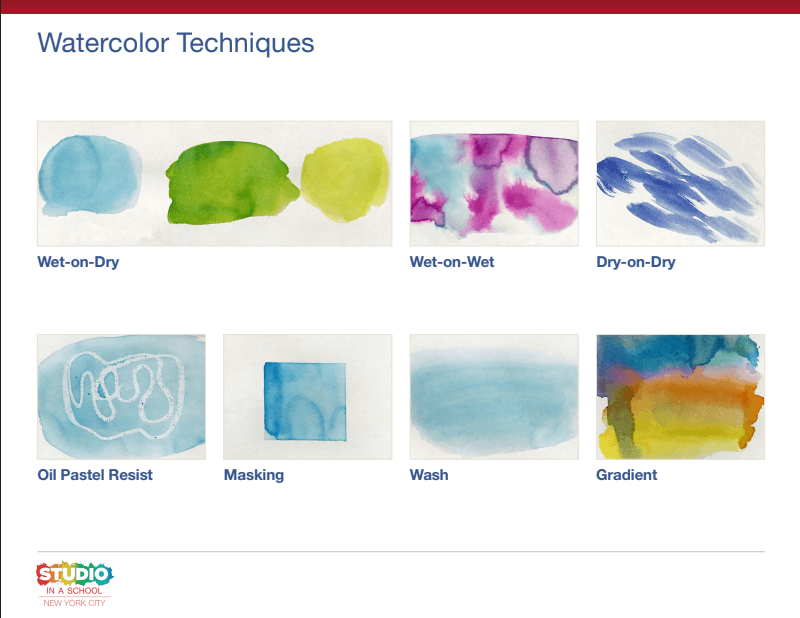
Close Looking: Tree Photos
Let’s look at some photos of trees.
Look at the images of trees in these 2 photos.
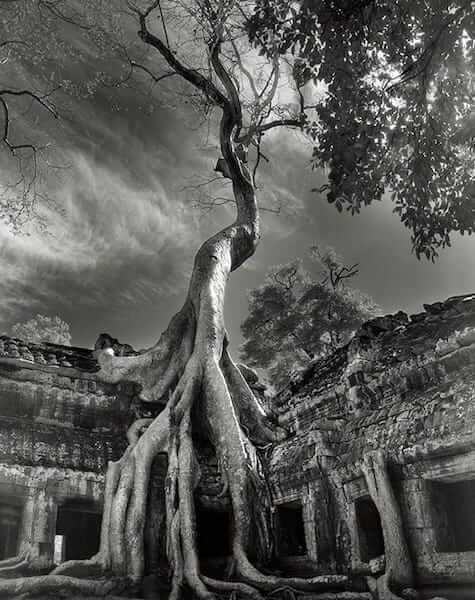
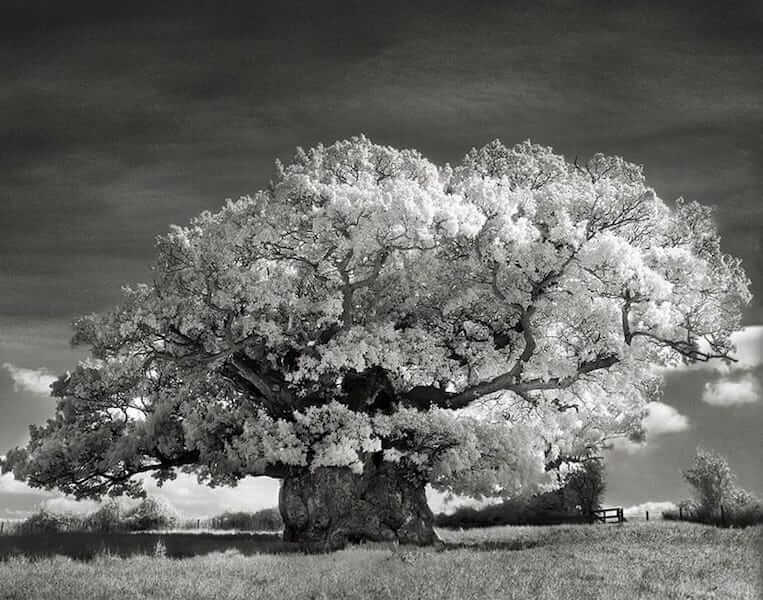
What do you notice about each tree?
What kind of lines do you see in the trunk and branches? Can you make a gesture with your body like that?
How does this tree make you feel?
Painting Imaginary Trees
Now, let’s paint our own imaginary trees!
You can use the photos we looked at for inspiration or a tree from your memory. Or you can combine different ideas to invent your own tree!
- What gesture will you show with the trunk and branches? What lines will you use to paint these?
- How will you paint the leaves? What techniques will you use?
- What colors will you use?
Reflection
Look at your painting.
- What kinds of lines did you use to make your tree?
- What kind of gesture did you create?
- What watercolor techniques did you use?
- Were you inspired by the trees that we looked at? Or a tree from your memory? What parts inspired you?
Close Looking: Ruth Asawa
Now, let’s look at at two paintings by Ruth Asawa.
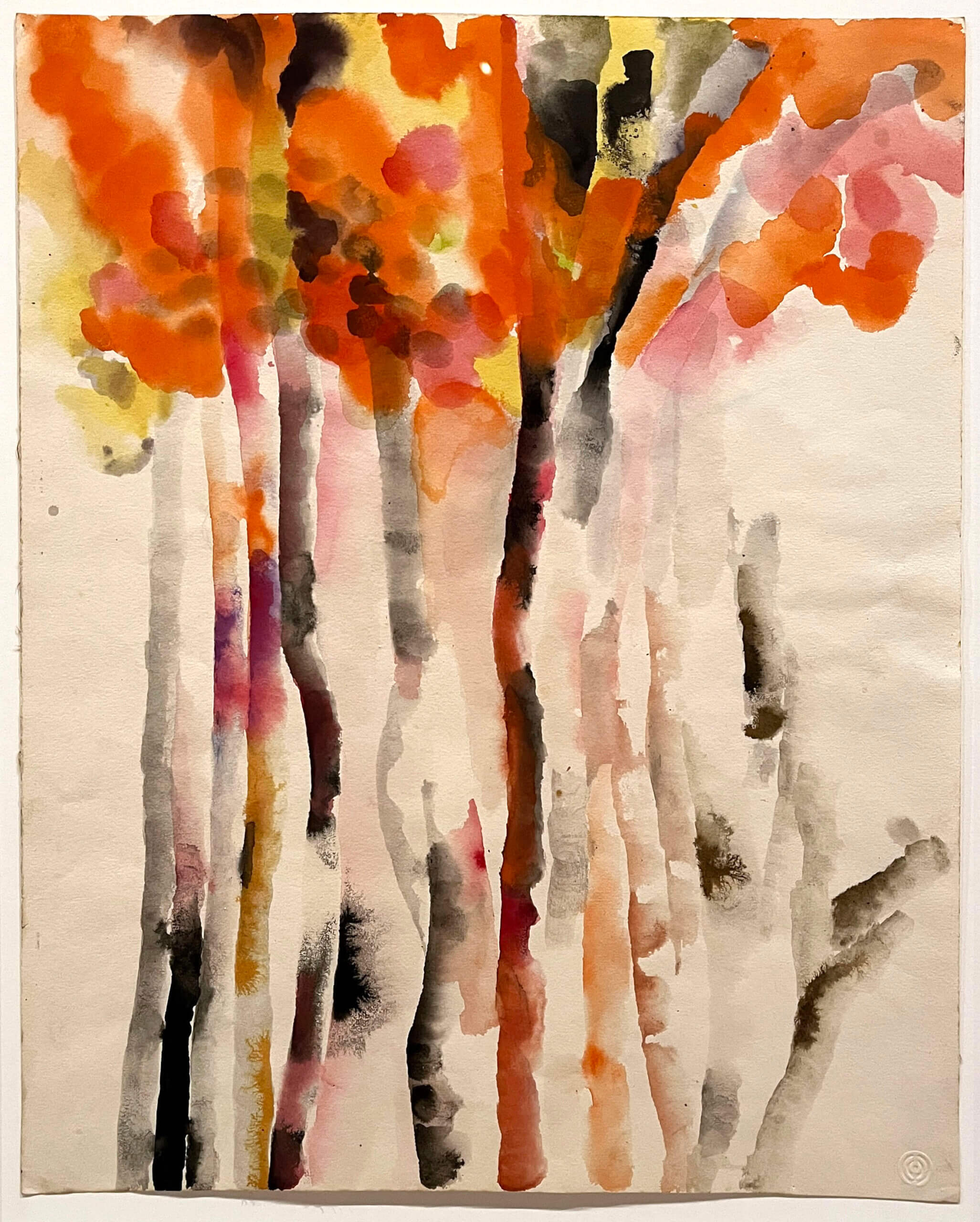
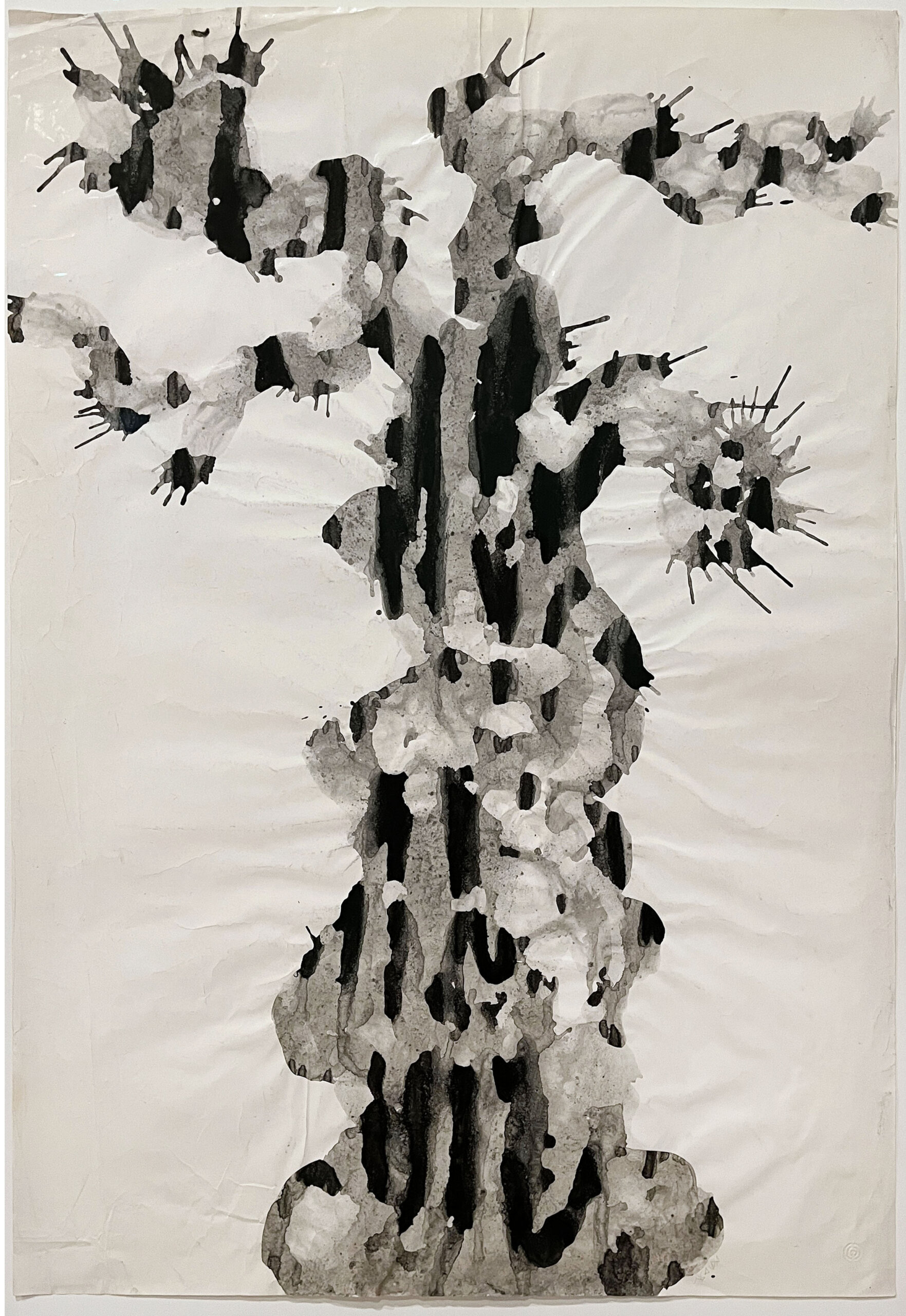
- What do you notice?
- Do you see any of the techniques that you explored? Where?
- How do you think Ruth Asawa painted these different parts?
- What gestures do you notice?
- How does this painting make you feel?
Extension
What do you notice about the colors in the second tree painting above?
Try painting a second tree using only one-color paint. What techniques will you use? What gesture will you create?
Resources

Credits
Imaginary Trees
Inspired by the Work of Ruth Asawa
Written by:
Andrea Burgay, Associate Director
Traci Talasco, Artist Instructor
Lesson Development
Julie Applebaum, Senior Director
Studio in a School NYC
Hasna Muhammad, Ed.D., Chair, Board of Directors, Studio in a School Association
Alison Scott-Williams, President, Studio in a School NYC
Copyright © 2024 Studio in a School NYC LLC
